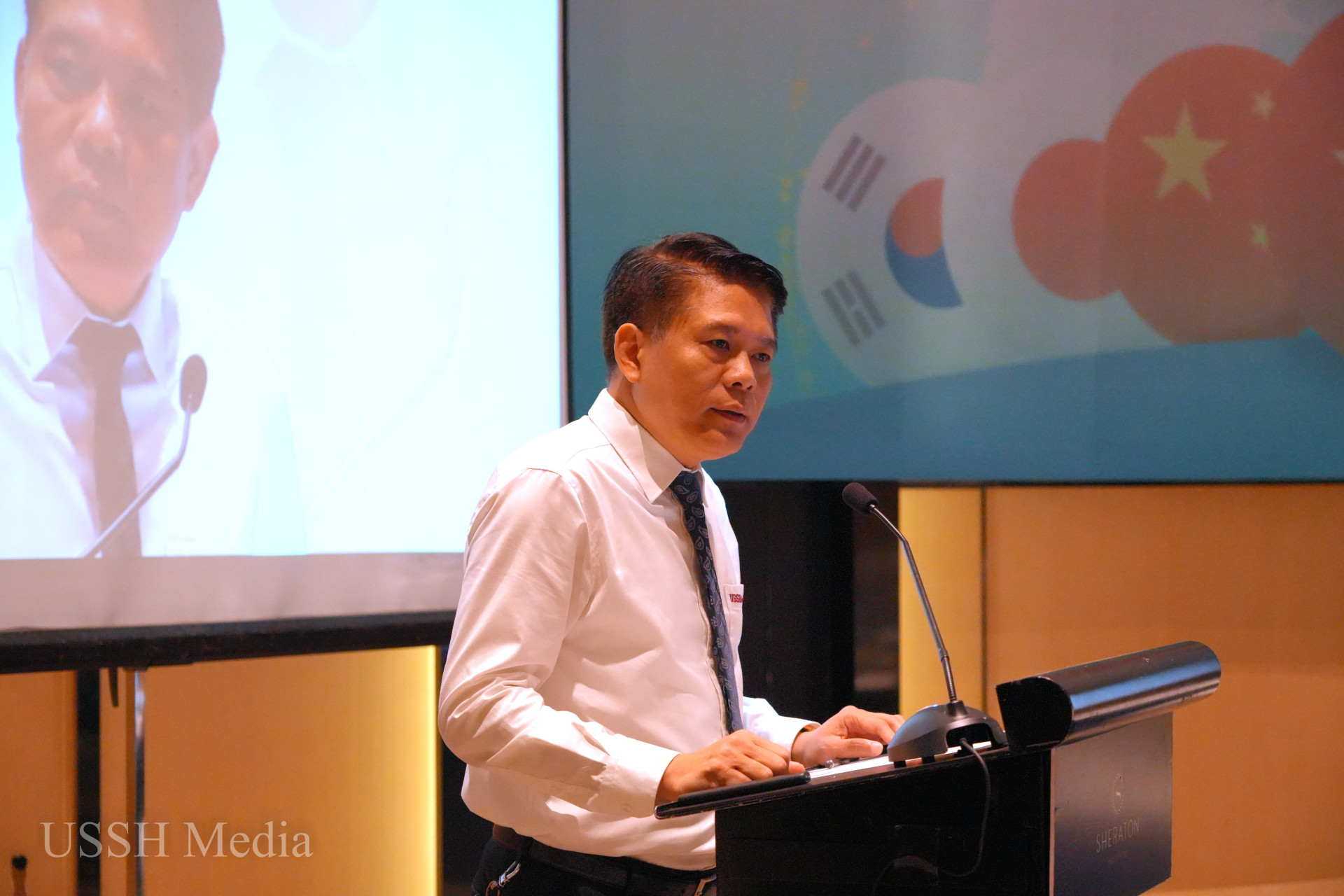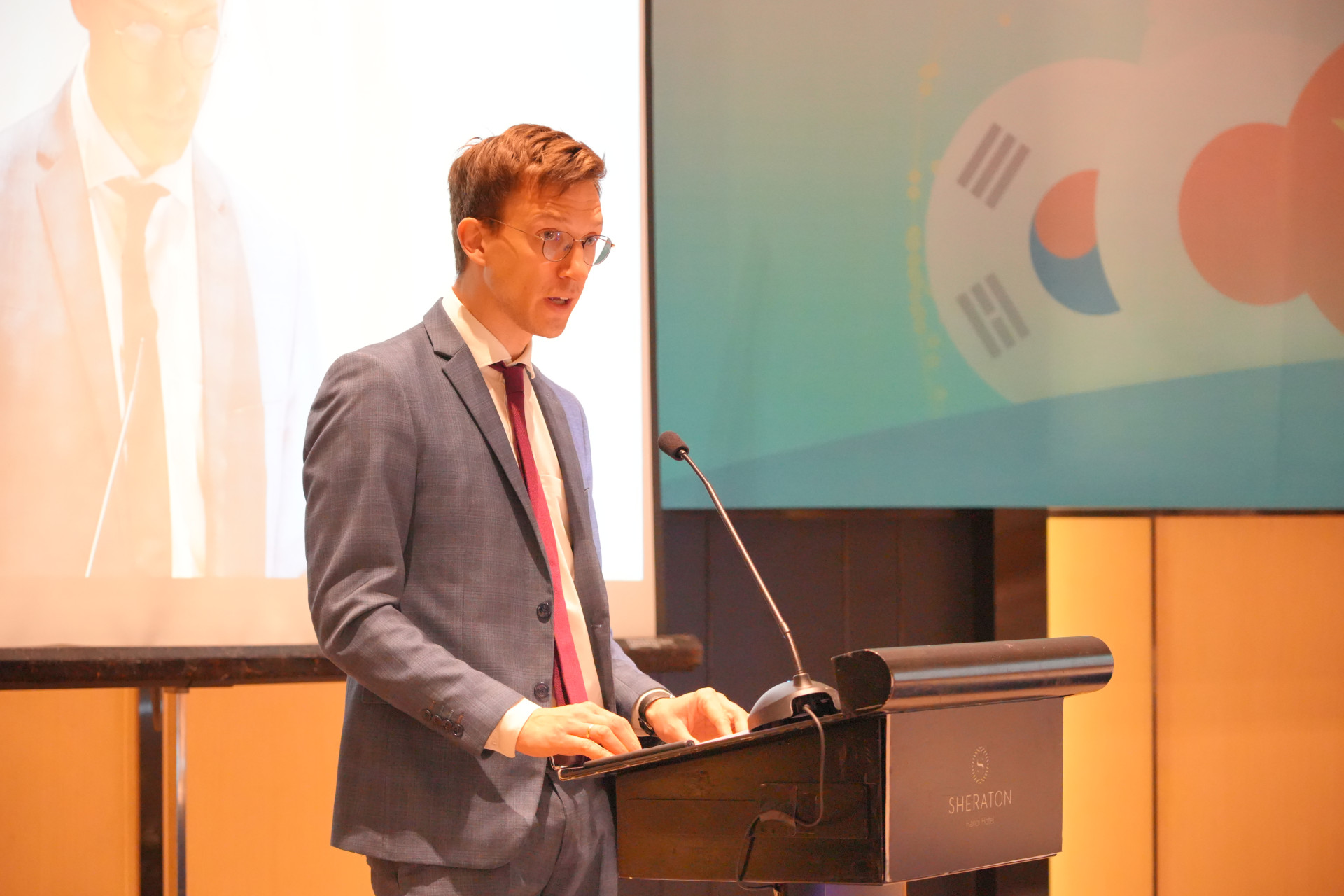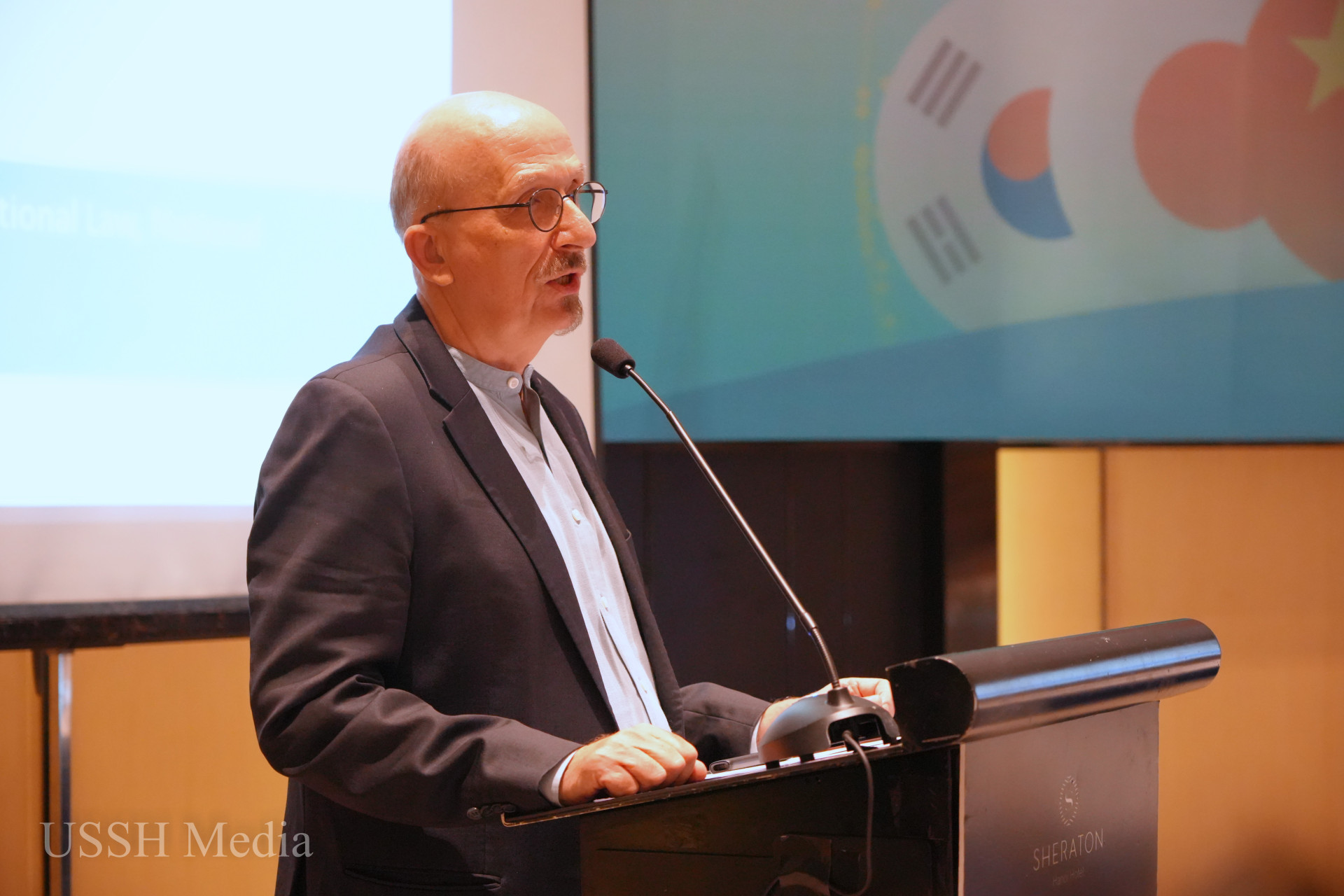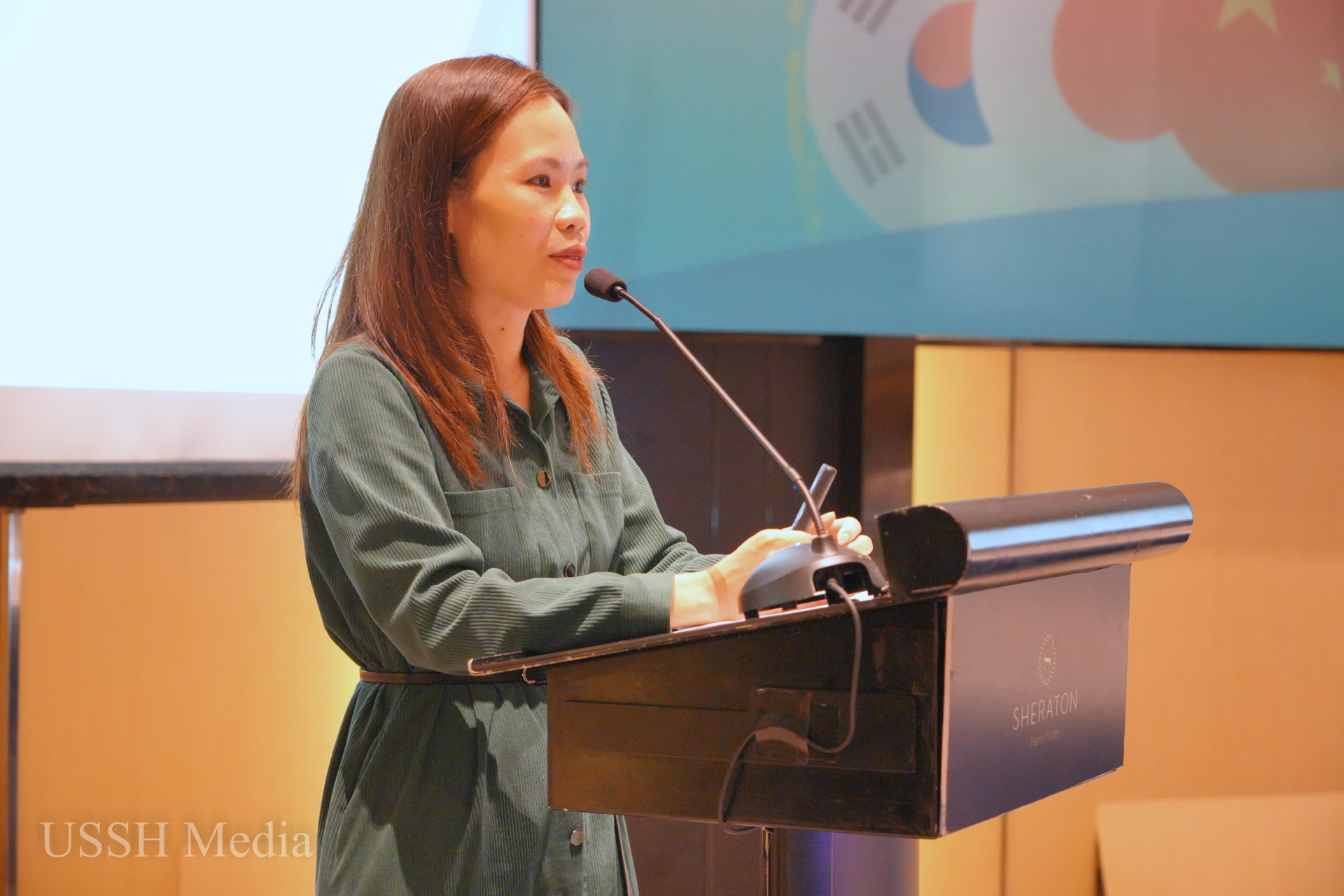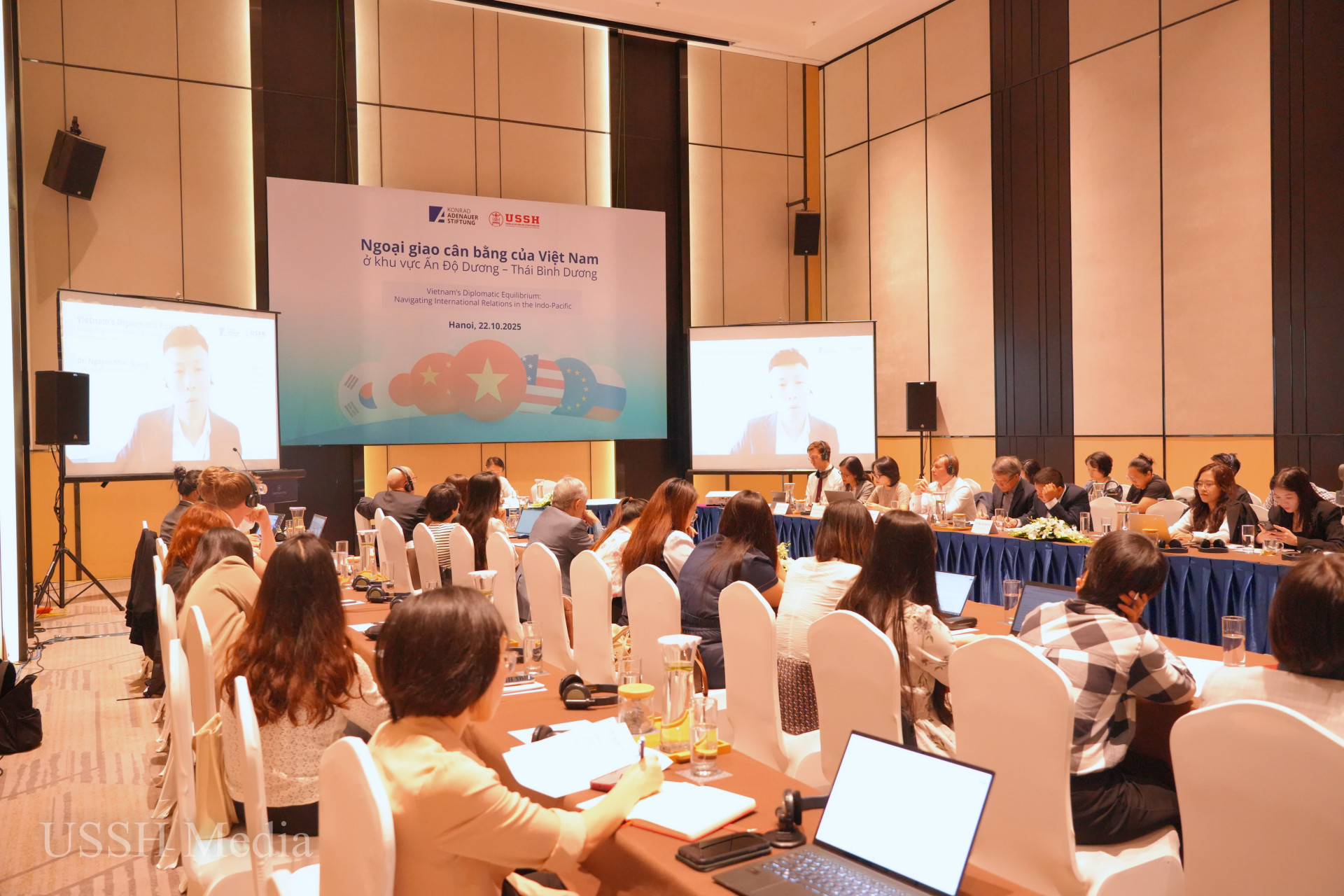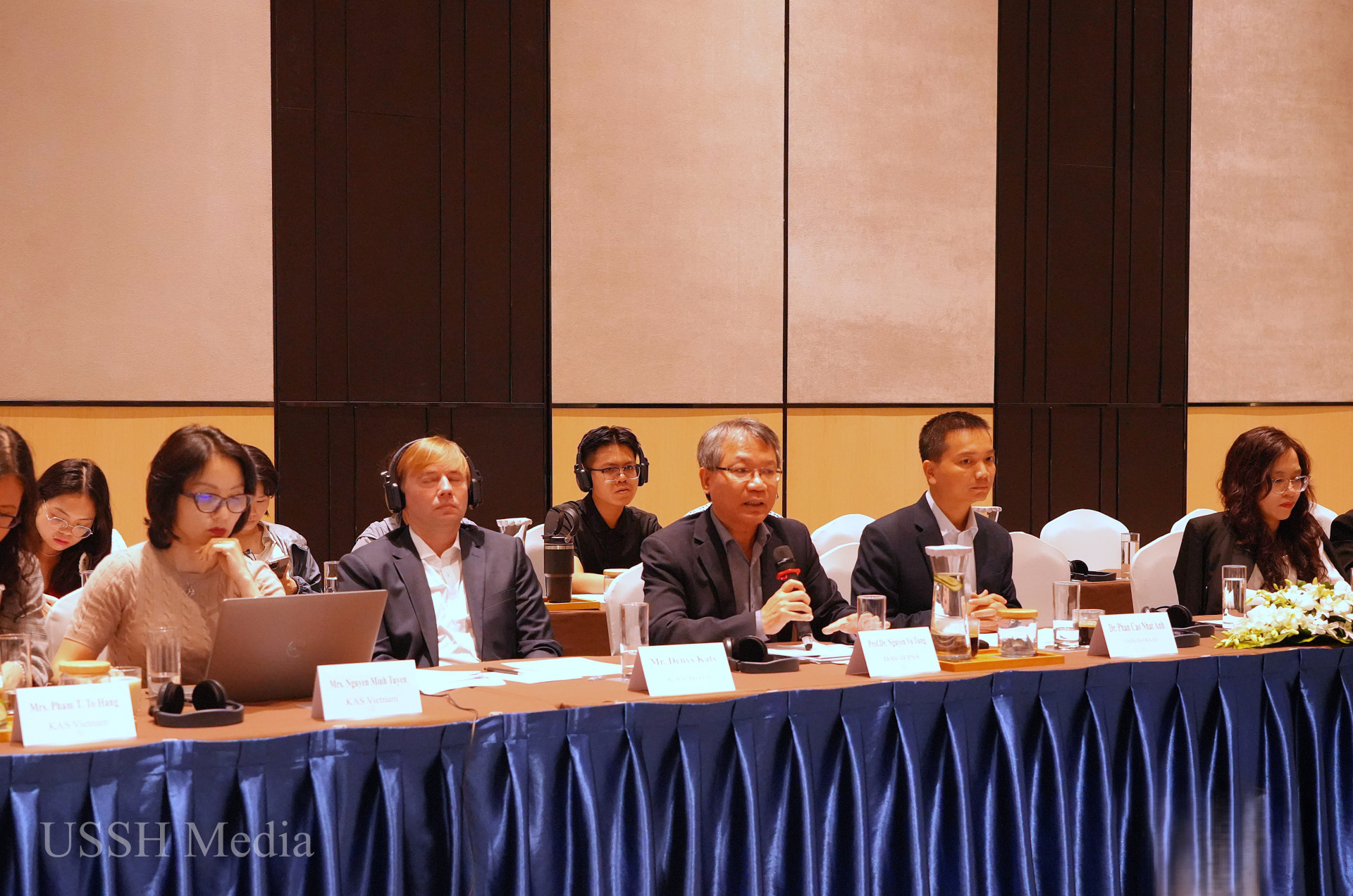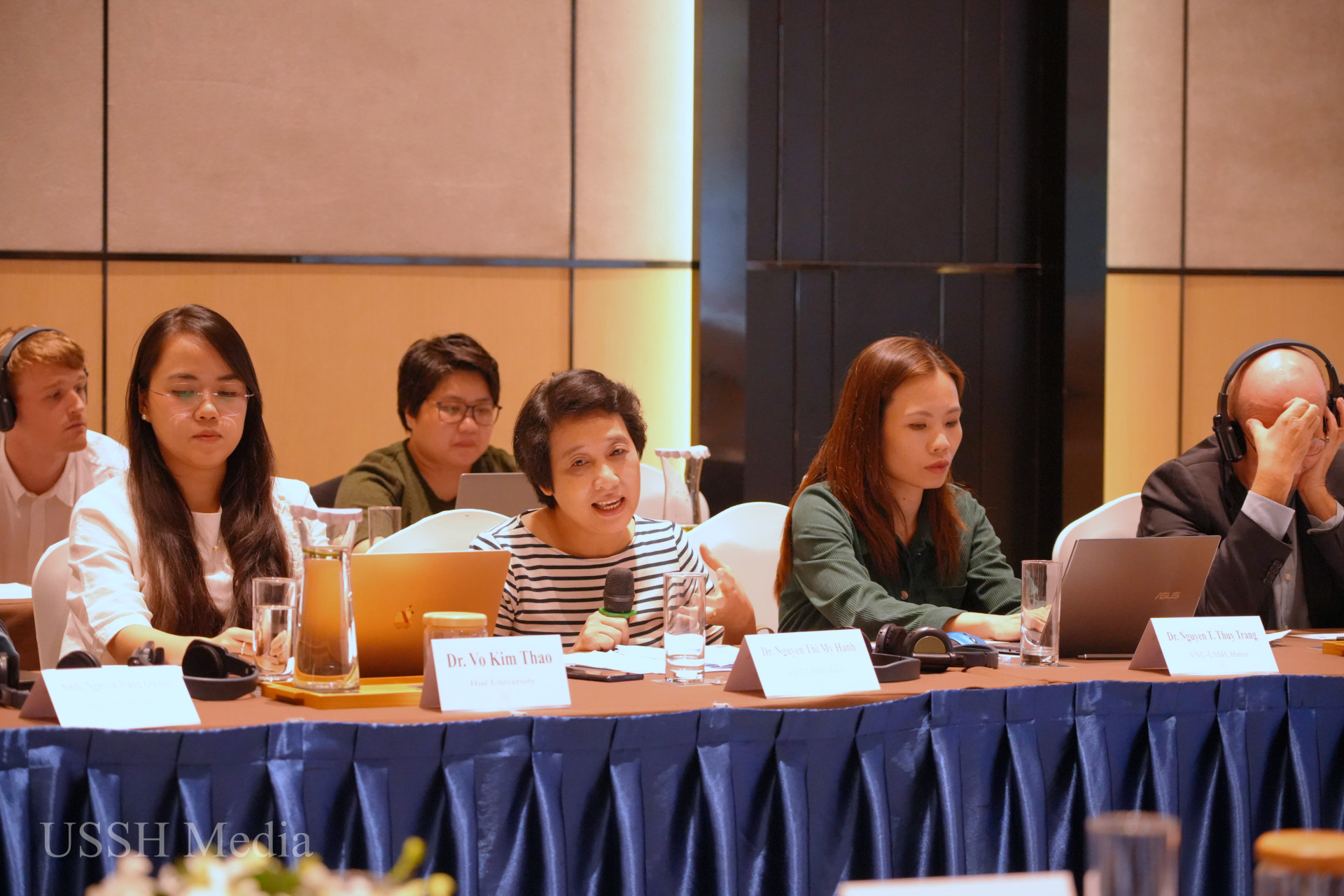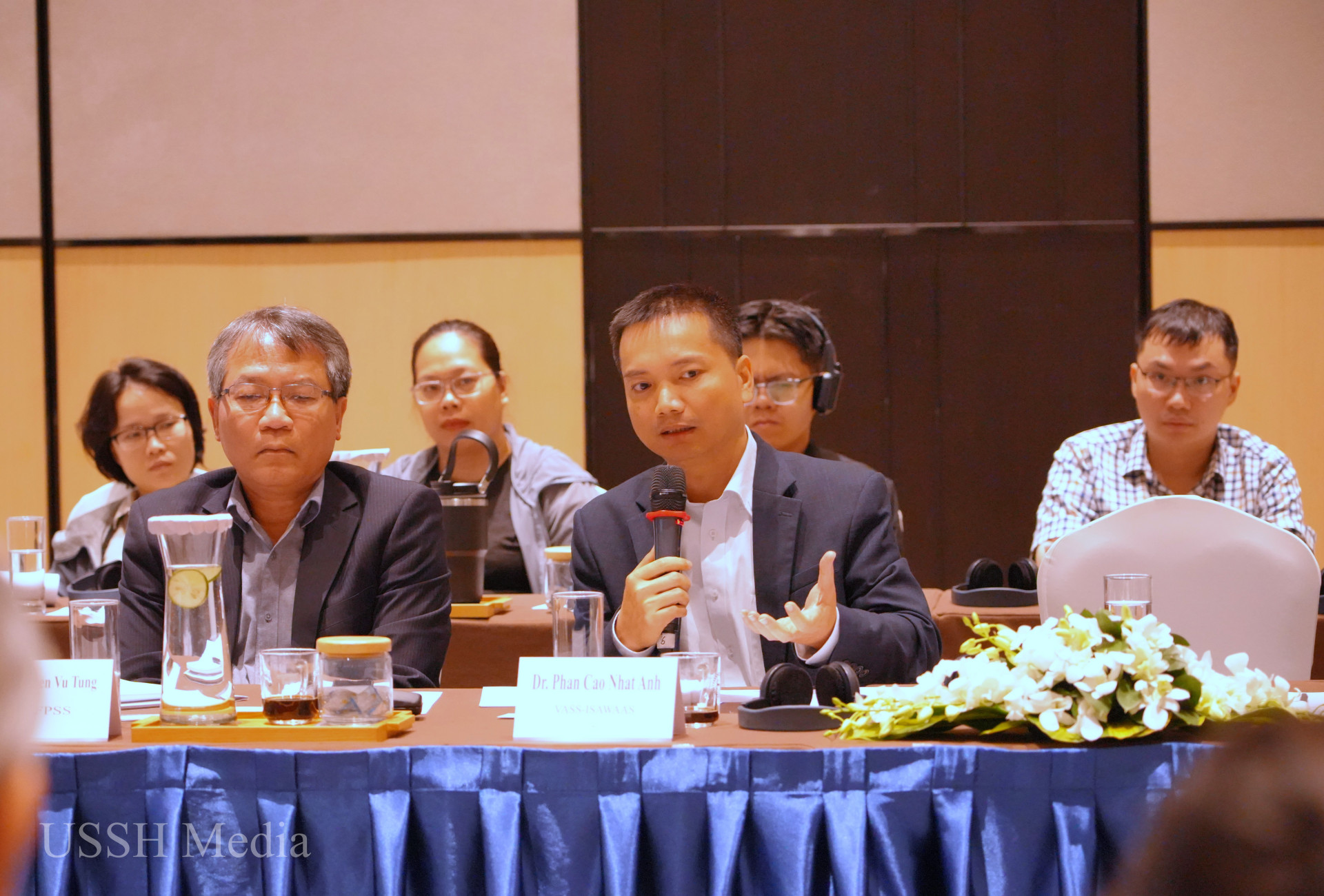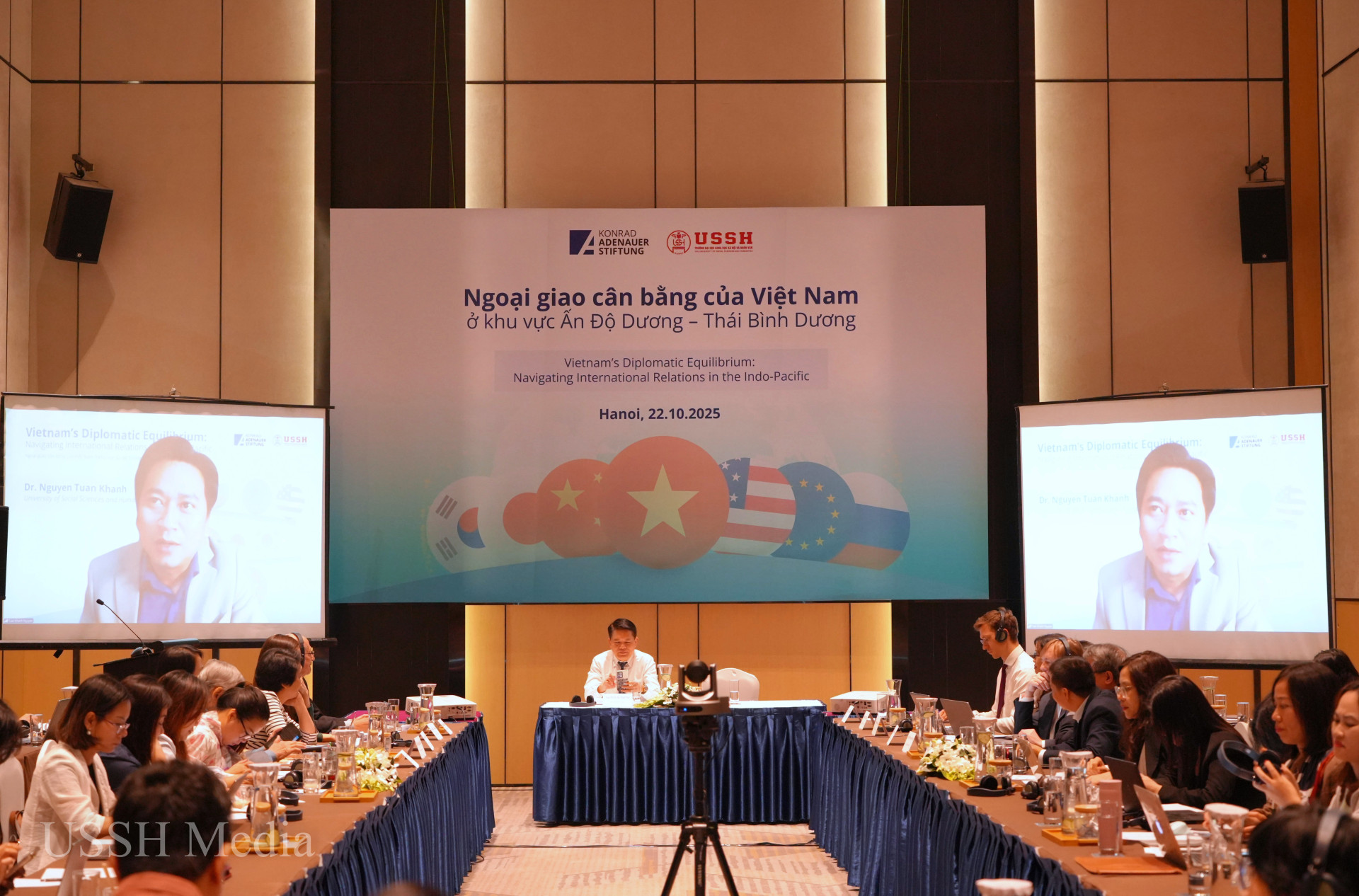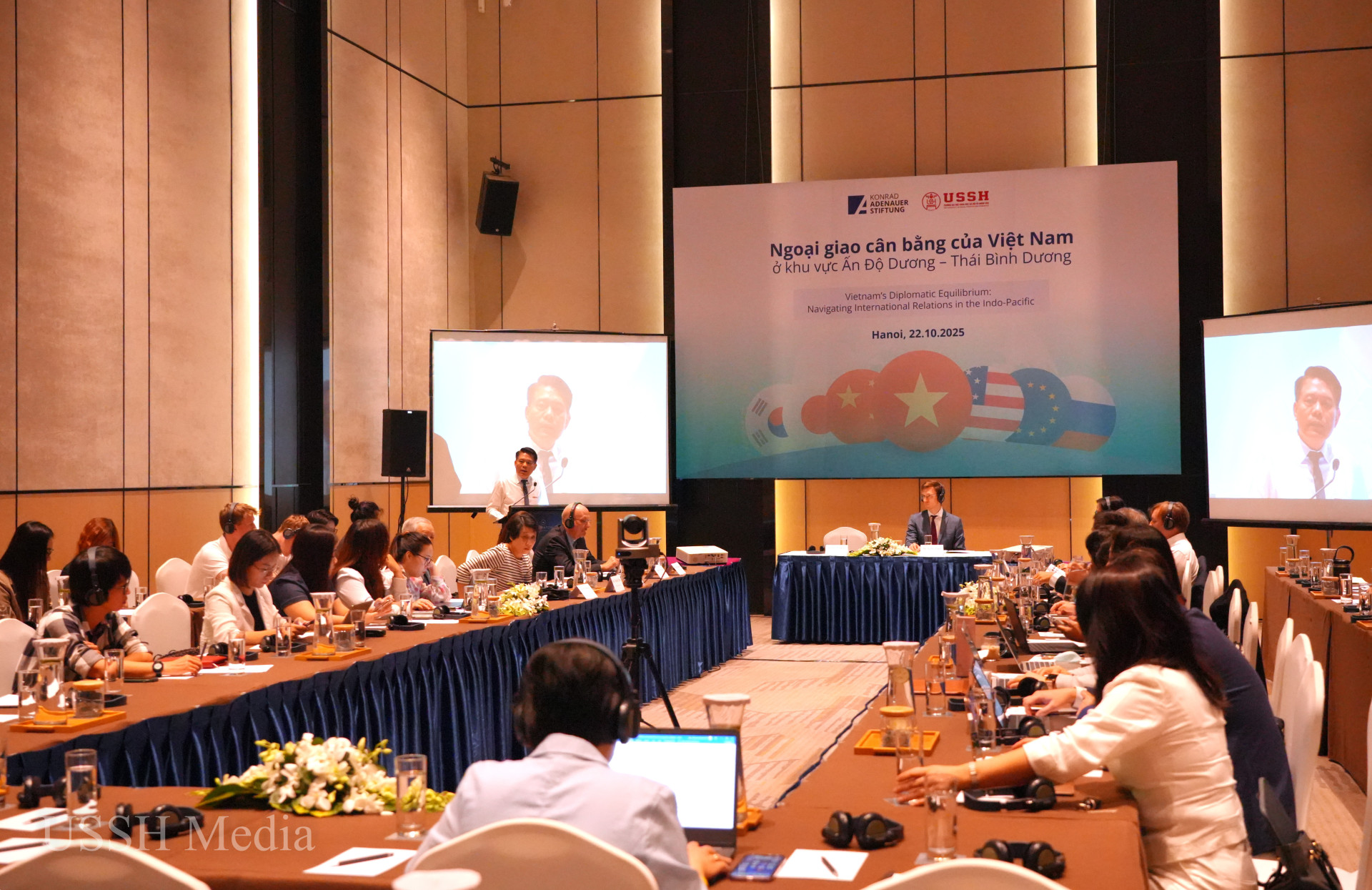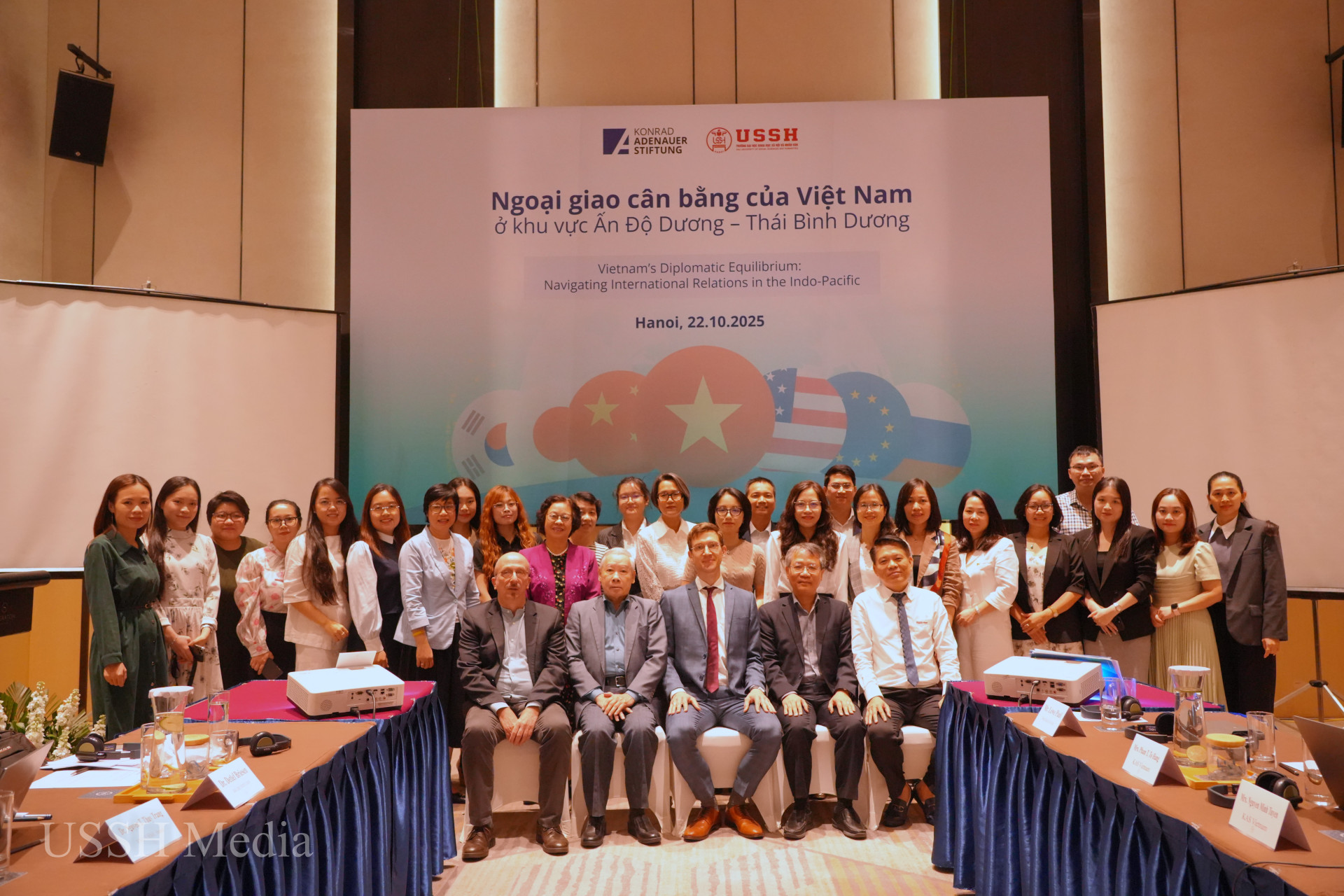Discuss current issues of concern regarding Vietnam's balanced diplomacy“Vietnam's Balanced Diplomacy in the Indo-Pacific Region” is a research project conducted by the University of Social Sciences and Humanities, with the support of the Konrad-Adenauer-Stifung (Germany). The project will be fully implemented in 2025 - a pivotal year with many fundamental changes, aiming at Vietnam's breakthrough development in the following years. The international conference with the theme "Vietnam's Balanced Diplomacy in the Indo-Pacific Region" was held with the direct and online participation of more than 100 scientists and managers from prestigious domestic and international organizations, research institutes and universities to share and discuss important research results of the project.
The workshop is also one of the activities towards the 80th anniversary of tradition and 30 years of development of the University of Social Sciences and Humanities within the structure of Vietnam National University, Hanoi.
Speaking at the opening of the workshop, Associate Professor Dr. Bui Thanh Nam - Chairman of the Council of the University of Social Sciences and Humanities said that the workshop's theme focused on Vietnam's balanced diplomacy - one of the important pillars to ensure position and stability in the rapidly changing international environment.
Assoc. Prof. Dr. Bui Thanh Nam - Chairman of the Council of the University of Social Sciences and Humanities affirmed that the results of the research project are a successful continuation of the cooperative relationship between VNU-USSH and KAS over the past years.
Mr. Lewe Paul - Chief Representative of Konrad-Adenauer-Stifung Institute in Vietnam spoke at the workshop
Mr. Lewe Paul - Chief Representative of Konrad-Adenauer-Stifung in Vietnam shared that, as a German political organization, KAS supports research and organizes this workshop to promote discussions on Vietnam's balanced foreign policy in the Indo-Pacific region. Mr. Lewe Paul expressed his hope that the workshop will achieve many results in discussing related aspects, while strengthening the good relationship between the University of Social Sciences and Humanities and Konrad-Adenauer-Stifung in particular, and between Vietnam and Germany in general.
At the workshop, speakers and researchers discussed many issues on Vietnam's balanced diplomacy that are of special interest in the current context.
Prof. Detlef Briesen - Justus Liebig University Giessen, Germany, a member of the research team, said that many different models are being discussed, from a new bipolar world system to pentapolar structures, to a multipolar world order with various forms of conflict and cooperation. International relations are in a stage of reconstruction with unpredictable results. This suggests at least one idea: countries like Vietnam now have more space to shape their national foreign policy.
According to Dr. Nguyen Thi Thuy Trang (Faculty of International Studies, University of Social Sciences and Humanities), Vietnam has successfully resolved the challenges posed by the increasingly fierce strategic competition between major powers thanks to its unique model. That is a commitment to balance, independence and integration. This is thanks to the overall measures that Vietnam has implemented, including: making diplomacy a part of security; participating in economic, political and cultural balance with other parties; using multilateral forums to resolve imbalances; and through soft power to strengthen its strategic autonomy. It can be said that this is a unique foreign policy of Vietnam.
Prof. Dr. Detlef Briesen (Justus Liebig University Giessen, Germany)
Dr. Nguyen Thi Thuy Trang presented a report with the topic "Convergence in agendas and power complementarity: The case of Vietnam, Indonesia and Australia in the Indo-Pacific region"
In addition, researcher Nguyen Khac Giang (Yosuf Ishak ISEAS Institute of Southeast Asian Studies, Singapore) expanded the issue of Vietnam's foreign relations in the context of the increasing trend of association between middle-ranking countries in the region. This trend is based on the convergence of agendas and the complementarity of power among these countries.
Dr. Nguyen Khac Giang (online) reports on Vietnam's strategy of balancing relations with major powers in the Indo-Pacific region.
Prof. Dr. Nguyen Vu Tung (Former Ambassador of Vietnam to Korea, former Director of the Diplomatic Academy of Vietnam) spoke at the Workshop
Also at the workshop, researchers and speakers discussed issues of concern such as the effectiveness, challenges and future scenarios of Vietnam's balanced diplomatic strategy; compared Vietnam's balanced diplomatic strategy with other Southeast Asian countries with geopolitical pressures. At the same time, speakers and researchers also proposed a number of necessary and meaningful research directions in the future.
Dr. Nguyen Thi My Hanh (Faculty of International Studies, University of Social Sciences and Humanities) discussed at the workshop
Policy recommendations for balanced diplomacy in the futureThe workshop “Vietnam’s Balanced Diplomacy in the Indo-Pacific Region” is considered to be of great significance in enriching knowledge and understanding of Vietnam’s diplomacy, contributing to clarifying theoretical and practical aspects in foreign policy making. This is also a forum to provide practical advice and recommendations to policy-making agencies, helping to concretize major orientations in implementing foreign policy strategies in the coming time.
Dr. Phan Cao Nhat Anh - Vietnam Academy of Social Sciences
According to Associate Professor Dr. Bui Thanh Nam, Vietnam aims to achieve a GDP growth rate of over 8% by 2025, and from 2026 onwards, strive to achieve a growth rate of over 10%, and by 2045, Vietnam will become a developed industrial country with high income. To achieve the goal of high and sustainable growth, Vietnam needs to carefully prepare the fundamental resources. Therefore, the workshop plays an important role in contributing opinions, policy advice and development models for the country in this period of strong transformation.
The conference organizers hope that, with the active participation of researchers, policymakers and international partners, especially the presence of the Konrad Adenauer Stiftung Foundation, the knowledge and information shared at the conference will continue to enrich Vietnam's diplomatic theory, while providing specific and strategic recommendations for the country's development process.
The workshop received many valuable exchanges and discussions, including practical policy recommendations.
Representatives of the University of Social Sciences and Humanities pledged to absorb, synthesize and study the comments contributed at the workshop to include in the school's policy advisory reports, serving the development of documents and national development strategies. At the same time, the results of the workshop will also be used as valuable academic documents to convey to students in the teaching and research process later.
